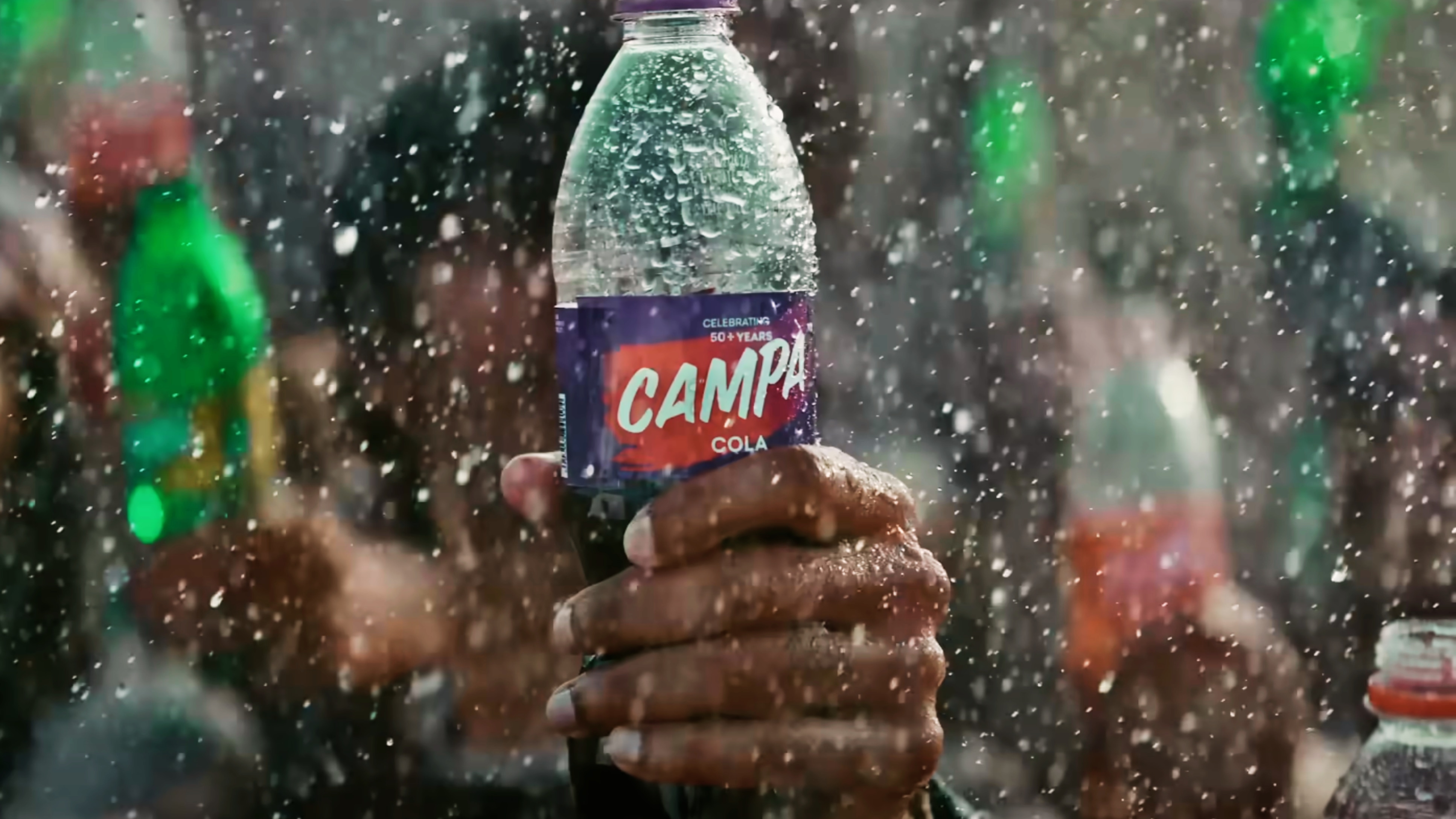
Reliance Consumer Products Ltd.'s Campa Cola, launched in 2022, is shaking up India's fizzy drink sector.
Positioned as a nostalgic yet modernised brand, Campa Cola has made a significant impact by introducing varied pack sizes and flavours at notably lower prices than established players like Coca-Cola and PepsiCo.
"We maintain a cautious outlook on the India beverage businesses of Varun Beverages, Dabur and Tata Consumer Products," Nuvama Institutional Equities said in a note titled Cutting Multiple Due To Campa Cola Risk.
As Campa Cola's reach and competitive pricing grow, here's how the existing industry giants are being affected.
Pricing Wars Heat Up
To counter Campa Cola's aggressive pricing, Coca-Cola India slashed the price of its 400 ml bottle by Rs 5, now retailing at Rs 20 to match Campa's 500 ml PET bottle. This move, initially implemented across southern states, reflects Coca-Cola's focus on staying competitive amid mounting pressure from the rival's budget-friendly offerings.
Nuvama said PepsiCo, too, has intensified consumer promotions across grocery stores and quick-commerce platforms, underscoring how competition from Campa Cola is reshaping strategies across the industry.
Disruption Across the Industry
Nuvama identifies PepsiCo's bottling partner, Varun Beverages Ltd., as potentially facing the biggest impact from Campa Cola's disruptive strategy. Priced at just Rs 10 for a PET bottle compared to VBL's Rs 20, Campa Cola's value-oriented approach is drawing price-sensitive consumers.
Although VBL has reinforced its go-to-market strategies, Nuvama said Campa Cola's effect is hard to ignore and poses a serious challenge to PepsiCo's India market footprint. It is also the bottler for Mountain Dew, Miranda and 7Up and Gatorade in India.
"While Campa Cola poses formidable competition, VBL has been improving its go-to-market strategies," its management has said.
Dabur, TCPL Respond
While not a direct competitor in the cola segment, Dabur India Ltd., a leader in juice-based beverages, has been impacted as consumers shift from juice-based toward carbonated drinks.
In response, Dabur has introduced products across multiple price points, ranging from Rs 10 to Rs 100, and is pivoting toward carbonated fruit-based drinks (fruit plus fizz) to cater to evolving preferences.
TCPL, too, has felt Campa Cola's entry ripple through its portfolio mainly due to the pricing. Nuvama said TCPL's NourishCo Beverages, which includes products like Tata Gluco Plus and Tata Water Plus, has been particularly affected.
Tata Gluco Plus has been significantly hurt. To combat this, TCPL plans to introduce new flavours, packs, and formats for Gluco Plus from November, while also projecting a return to 25–30% growth for NourishCo by the third quarter of the current financial year.
Campa's Strong Demand And Production Capabilities

Campa Cola's momentum has not gone unnoticed. During Reliance Industries' first-quarter earnings call, the management expressed optimism about its traction and customer acceptance, with plans to strengthen the brand's supply chain.
To support Campa Cola's expansion, RCPL is developing new bottling units, adding three to four facilities on top of its existing network of seven to eight external bottlers. Nuvama's findings highlight that RCPL aims to build local infrastructure to streamline distribution and meet growing demand nationwide.
Long-Term Outlook For Indian Beverages
As per Nuvama, many investors have underestimated Campa Cola's potential, citing taste as a potential barrier. However, Nuvama's analysis suggests that in the price-sensitive Indian fast-moving-consumer-goods landscape, factors like affordability, packaging, and widespread distribution often outweigh taste.
Looking forward, Nuvama forecasts that Campa Cola will continue to reshape India's beverages market over the next two to four years, compelling traditional players to adapt to a more value-driven consumer base.
With Reliance doubling down on its infrastructure and expansion, Campa Cola is well-positioned to redefine the playing field in India's fizzy drink market. The long-term impact remains to be seen, but if current trends hold, the landscape may look very different for Coke, PepsiCo, Dabur, and Tata Consumer Products in the near future.
Essential Business Intelligence, Continuous LIVE TV, Sharp Market Insights, Practical Personal Finance Advice and Latest Stories — On NDTV Profit.























